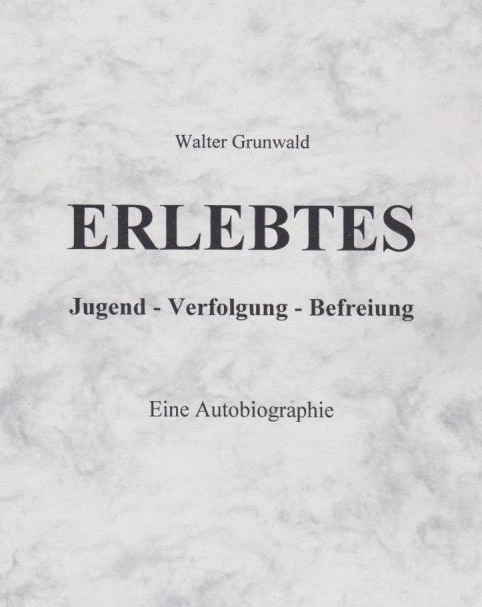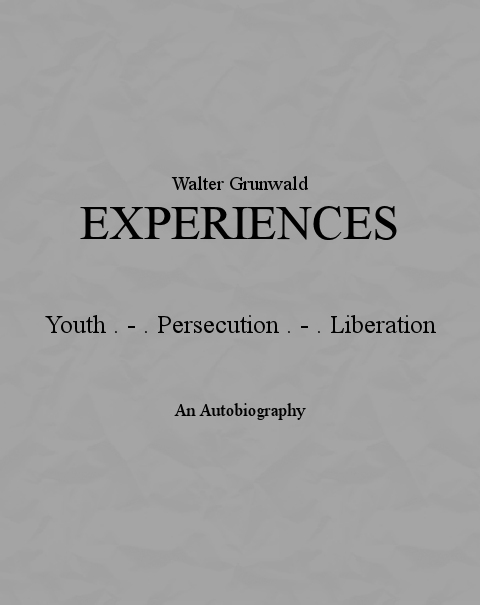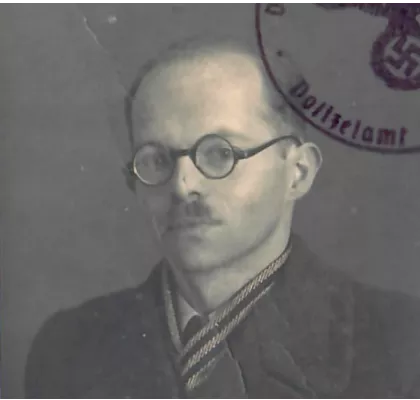Walter Grunwald (1919-2000)
An active contemporary witness
- © Privat
Walter Grunwald was born to the Jewish pharmacist Georg Gruber and the Protestant Paula Grunwald (née Kosek) on 04 September 1919 in Berlin-Pankow. His paternal grandfather moved to Berlin in 1888 to manage a Jewish orphanage, which later became the 2nd orphanage of the Jewish community in Berlin-Pankow and was seized by the Gestapo in 1941. His parents had met in Berlin prior to the First World War and got married after the war. Walter was enrolled at a Catholic school in 1926. As a child, he suffered from various illnesses, making it difficult for him to attend school. In 1930, he transferred to a humanist secondary school and his family moved into a larger flat in Pankow's "Schlosspark".
The pharmacy of Walter's father was affected by the nationwide boycott of Jewish businesses following the National Socialists’ rise to power. Not long after, he even lost the operating licence. While he was recovering at a sanatorium in Florence in 1936, Walter managed to graduate from secondary school and then returned to Berlin. From then on, Walter was considered a "Geltungsjude" - the name given to Jews who had two Jewish and two "Aryan" grandparents and who had not been baptised. He was denied access to university and instead began an apprenticeship as a cabinet maker. In spring 1941, Walter became a forced labourer, working as a coal shipper. On 23 July 1942, he married his girlfriend Steffi. Shortly afterwards, her grandmother Agnes Kropf was deported to Theresienstadt. Walter's father was arrested during the "Fabrikaktion" on 27 February 1943, but following protests, was released shortly afterwards due to being a Jewish "mixed marriage" partner. Walter and Steffi were not affected by the "Fabrikaktion". Only a short time later, however, they were arrested during a raid. Walter was sent to the Große Hamburger Straße detention centre, where his parents supported him as best they could. However, he never saw Steffi again.
Walter was deported to Theresienstadt on 17 March 1943. He was in Wulkow from March 1944 to February 1945. Shortly before the end of the war, he was deported to Schnarchenreuth, Bavaria as part of a labour detachment. Fortunately, he was reunited with his parents after the liberation. In 1946, he met his second wife Ursula with whom he emigrated to Sweden in 1947. They had two children, but their marriage ended in divorce in 1959. In 1964, he was betrothed to Jutta. The two remained happily married until his death.
Between 1987 and 2000, Walter often visited the sites of his suffering and shared his story with several schools in the Wulkow area. In 1995, he received a letter from Jan Jecha, his former camp mate from Wulkow, and took part in several meetings of former Wulkow prisoners, also one on site at which the memorial plaque in Hermersdorf and the two memorial stones in and near Wulkow were inaugurated.
(Texts partly from Wikipedia)
Walter Grunwald describes his experiences in his report "Erlebtes" ("Experiences"). He died on 22 March 2000 in Berlin.



